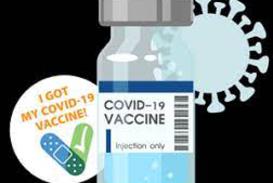3 COVID-19 OPTIONS: IMMUNIZATION, MONOCLONAL ANTIBODY, ANTIVIRAL
by John G. Baresky on 03/17/20
COVID-19 is a worthy opponent for the world's healthcare community: medical professionals and the pharmaceutical, diagnostic, medical device and technology companies that support them
There is an array of organizations deploying substantial clinical, financial and technical resources to develop a solution to the COVID-19 pandemic. Different approaches are being explored as COVID-19 is a new and complex threat. Although it may share similarities to other viral pathogens, its unique characteristics, unknown biological attributes, contagious mobility and varying impact on individuals makes it an unwieldy foe to weaponize bioscience against.
A shared challenge to mitigate or eliminate the threat of COVID-19
Medical professionals, hospitals, health systems, universities, research institutions, government laboratories, biotech and pharmaceutical companies are hotly pursuing a victory against COVID-19. Their playbooks include conventional vaccine development, use of biological therapies including monoclonal antibodies (mAbs) as well as basic and advanced antiviral medications.
Experience and education fueling the effort
Those working on an answer to COVID-19 are applying their experience and knowledge based on past and ongoing threats including Cholera, Dengue, Ebola, H1N1, H5N1, H7N9 Hendra, HIV, Herpes, Marburg, Measles, MERS, Mumps, Nipah, Polio, Rubella, SARS, Typhoid Fever and Zika. The clinical researchers and healthcare data scientists plus medical professionals working with patients and healthcare authorities are sharing their knowledge and learning on-the-go.
$50 Million From The Bill & Melinda Gates Foundation
The lineup of clinical intellect is impressive; the amount of support from governments and even private citizens and charitable groups is admirable. A leading example of enormous generosity: The Bill & Melinda Gates Foundation donated $50 million to 12 pharmaceutical companies to advance COVID-19 research.
Immunizations: the ideal long term solution to COVID-19
A vaccine to prevent COVID-19 or assertively mitigate its ability to cause significant illness is a perfect solution but challenging to come by. It has to be evaluated for efficacy as well as suitability for mass production. A pathogen like COVID-19 will likely require millions of doses of a vaccine to protect those at risk.
Once a vaccine candidate clears those hurdles a manufacturing facility has to be identified that can produce it and additional test batches produced to assure quality standards are met. The creation of a new vaccine can take considerable time, funding and other resources.
Exploring a COVID-19 solution based on mRNA characteristics
CureVac, BionTech, Moderna are three companies with an even more exacting strategy to developing an effective COVID-19 immunization. Their development experience and focus centers on messenger RNA (mRNA) therapeutic dynamcis that align well with the characteristics of COVID-19.
An added plus to this approach, depending on the final formulation if found to be effective, is that the approved candidate could possibly be ramped up for mass production in a short amount of time.
This is a list of leading firms engaged in the development of a COVID-19 immunization:
- BioNTech (NASDAQ: BNTX)
- Clover BioPharmaceuticals (Privately Held)
- CureVac (Privately Held)
- Fosun Pharma (OTCMKTS: SFOSF)
- Gilead (NASDAQ: GILD)
- GlaxoSmithKline (NYSE: GSK)
- Inovio Pharmaceutical (NASDAQ: INV)
- Johnson & Johnson (NYSE: JNJ)
- MIGAL (Research Institute)
- Moderna (NASDAQ: MRNA)
- Pfizer (NYSE: PFZ) – partnering with BioNTech and Fosun
- Regeneron (NASDAQ: RGN)
- Sanofi (NASDAQ: SNY) – partnering with Regeneron
- Takeda (NYSE: TAK)
- VIR Biotechnology (NASDAQ: VIR)
Monoclonal Antibody versus COVID-19
Another approach is the potential of Regeneron’s Kevzara (sarilumab), a monoclonal antibody, against COVID-19. Kevzara is an interleukin-6 (IL-6) receptor antagonist. Kevzara is presently indicated for severe rheumatoid arthritis (RA). IL-6 could be triggering the overactive inflammatory response in the lungs of patients who are critically ill with COVID-19.
Regeneron and Sanofi are partnering to manage clinical trials of Kevzara and closely study the ability of an interleukin-6 (IL-6) receptor antagonist to combat COVID-19’s effects. The use of mAbs is also being explored in the treatment of Ebola virus and Malaria.
Regeneron’s and Sanofi’s exploration is based on the initial signs of success another IL-6 receptor antibody, tocilizumab, had in China against COVID-19. While tocilizumab is still being assessed, China added it to their formal COVID-19 treatment guidelines.
Tocilizumab, developed by Chugai, is
marketed as Actemra by Genentech/Roche in the United States. Actemra has four FDA
approved indications: moderate to severe rheumatoid arthritis, giant cell arthritis, Polyarticular juvenile idiopathic arthritis and systemic juvenile
idiopathic arthritis.
A monoclonal antibody agent effective against COVID-19 would be a welcome answer. They are complex therapies to develop and produce but if highly targeted could bring about the desired results no matter the cost.
Antiviral Medications versus COVID-19
Flu, herpes, HIV and other viral pathogens have large patient populations. They have fostered the development of numerous brand and generic formulations of antiviral medications plus more in pharma pipelines or castoffs from earlier clinical failures against other viruses.
New, old or on the clinical trial scrap heap, there is great potential to align them with COVID-19 to find selections most likely to demonstrate efficacy at a therapeutically acceptable level against it. By inhibiting a viral pathogen's ability to replicate, they slow or stop its progress and enable a patient to better withstand and outdistance its effects.
An antiviral product or a combination of therapies including an antiviral agent, could be a solution to COVID-19. Presently, a combination of a protease inhibitor, Prezista (darunavir) and cobicistat (a pharmacokinetic enhancer), are being evaluated in tandem against COVID-19. Remdesivir, an investigational nucleotide by Gilead, is an example of another antiviral treatment pathway being explored.
Johnson & Johnson has issued a warning regarding use of Prezista for COVID-19. The product was used for treating SARS patients; while SARS and COVID-19 have some similarities, the differences between the two mean Prezista may not be effective against COVID-19.
Data that may indicate its effectiveness against SARS does not convert to efficacy against COVID-19. This is an instance where close clinical study of an agent like Prezista and any adjunctive therapies used to treat COVID-19 is required to confirm level of effectiveness.
Just as with vaccines and mAbs, an antiviral therapy solution must demonstrate efficacy and have the right attributes to be mass-produced then facilities and production processes come next that are rigorously fortified with quality reinforcements.
This is a list of leading companies that develop, manufacture and commercialize antiviral products:
- AbbVie (NYSE: ABV)
- Arbutus Biopharma (NASDAQ: ABUS)
- Aurobindo Pharma (NSE: AUROPHARMA)
- Bristol-Meyers Squibb (NYSE: BMY)
- Gilead (NASDAQ: GILD)
- GlaxoSmithKline (NYSE: GSK)
- Johnson & Johnson (NYSE: JNJ)
- Merck (NYSE: MRK)
- Roche (OTCMKTS: RHHBY)
- Sino Biopharmaceutical (HKG:1177)
Summary
Vaccines, monoclonal antibodies (mAb) and antiviral therapies are just 3 of the options being explored to find an effective agent to deploy against COVID-19. Upfront experience and analytics in qualifying and identifying options is part of the process, critically assessing their activity and outcomes is the next step. It's still too early to tell which of these 3 or other routes to a solution will emerge as the first primary contender.
These approaches, along with many others, are making progress towards an answer to this global threat.The discoveries and advancements made along the way are the building blocks for future healthcare breakthroughs.

